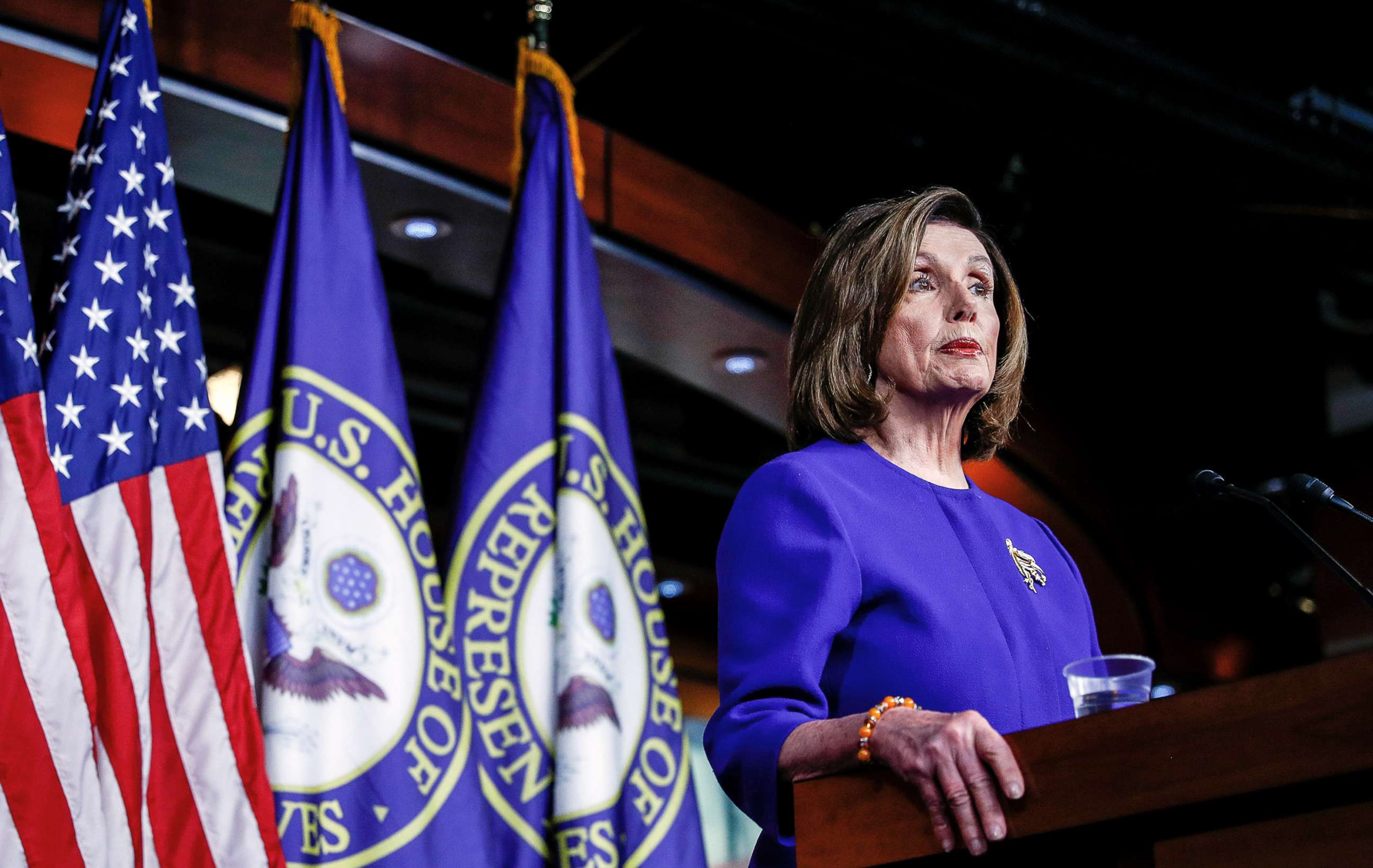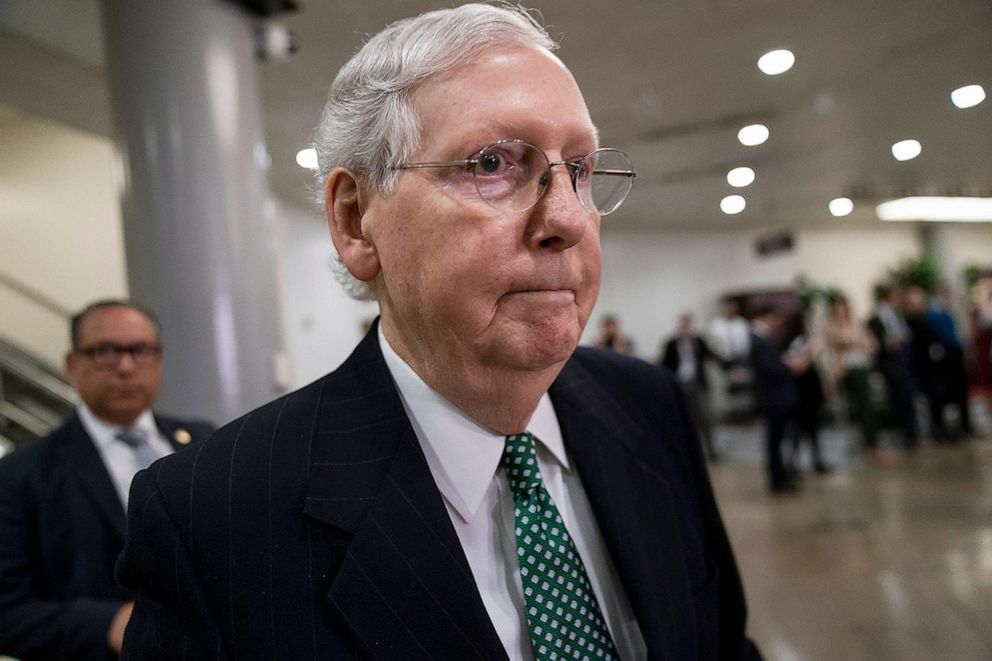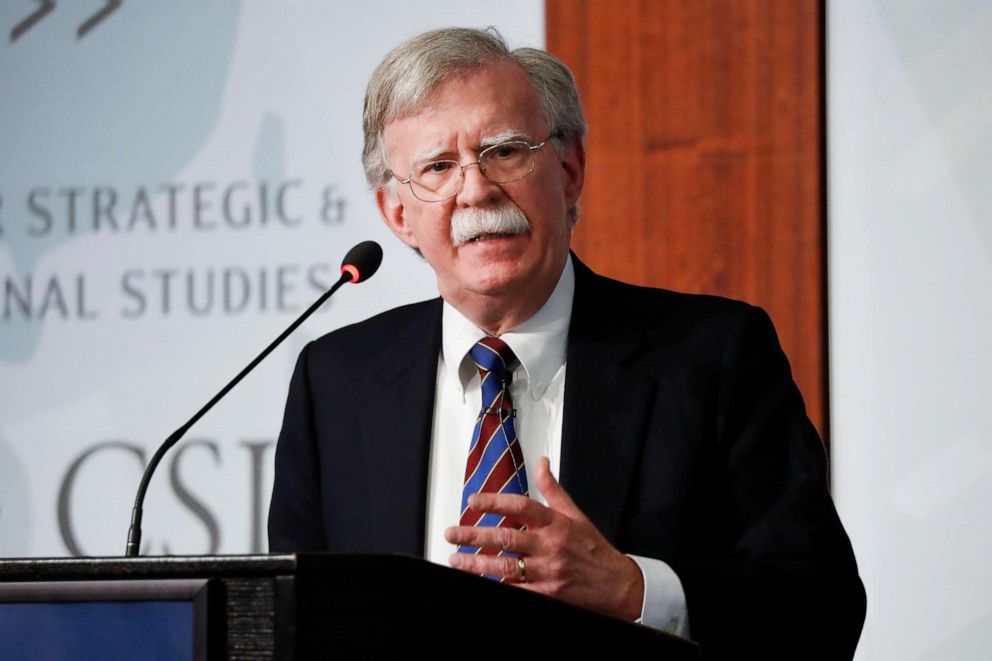Trump's impeachment trial: How we got here, what happens next and what to watch
Wild cards include potential witnesses, new evidence and Trump himself.
The Senate is days away from kickstarting a trial that will determine whether President Donald Trump should stay in office.
While removal by the Republican-controlled Senate is a remote possibility, there are enough wild cards in the Ukraine saga that could shake up the historic proceedings and make them worth tracking.
Here's a look at how we got there, what happens next and what to watch.
How we got here
Last month, the House voted largely along party lines to impeach the president on two grounds: abuse of power and obstruction of Congress.
The effort capped weeks of a Democratic-led inquiry into Trump's decision to hold nearly $400 million in security assistance for Ukraine while simultaneously asking the foreign power to investigate his political rival, Democrat Joe Biden. Trump also wanted Ukraine's new president to probe the unsubstantiated idea that Ukraine -- not Russia -- was behind an aggressive foreign-based effort to manipulate social media and sway American voters in the 2016 election.

Trump has insisted his efforts were to root out corruption, although Pentagon and State Department officials testified that Ukraine's newly elected government had met the necessary requirements and that helping Ukraine fend off Russian aggression advanced U.S. security interests.
House investigators were ultimately able to document extensive evidence of a pressure campaign orchestrated by Trump's lawyer, Rudy Giuliani, and executed by a former campaign donor -- Gordon Sondland, who was appointed as European ambassador.
But because the White House directed current and former staff members not to comply with subpoenas, the inquiry left unanswered at least one key question: Did Trump tell his aides he'd only release the aid after Ukraine's president agreed to announce an investigation into the Bidens?
Democrats decided against waiting for the courts to weigh in on whether the White House should be forced to comply with subpoenas. On Dec. 18, the House voted 230-197 in favor of the article alleging abuse of power, and 229-198 in favor of the charge of obstruction of Congress.
With that, Trump became the third U.S. president to ever be impeached, along with Andrew Johnson and Bill Clinton.
What happens next?
House Speaker Nancy Pelosi says she's planning a floor vote on Wednesday to name the official "impeachment managers" -- the Democratic lawmakers who will deliver the articles of impeachment to the Senate. The impeachment managers will act much like trial prosecutors, and the senators tasked under the Constitution to act as the jury.
This comes after sitting on them for nearly four weeks, as her critics accused her of playing politics.

"This strange gambit has achieved absolutely nothing," declared Senate Majority Leader Mitch McConnell, who on Monday was still finalizing proposed trial rules.
Democrats counter that her delay forced a public debate on the rules for the Senate trial, including whether Republicans would allow new witnesses or testimony to come forward.
After the articles are presented -- this will involve some pageantry with the House lawmakers marching across the Capitol to the Senate side and reading the charges aloud on the Senate floor -- Chief Justice John Roberts will come over from the Supreme Court to be sworn in to preside at the trial. Roberts will then swear in the 100 senators as jurors, and the official trial will begin.
GOP Sen. John Cornyn told reporters that he expects opening arguments to begin on Jan. 21.
What to watch
There are several potential wild cards in the Senate trial, including Trump himself. No one expected during the House inquiry for the president to aim his Twitter following at witnesses before and during their testimony -- prompting Democrats to accuse him of witness tampering. This will be the first impeachment trial in history in which senators will have access to the president's reactions instantaneously via Twitter.
Also under the rules, the president has the right to appear during the trial, although that possibility is considered remote. The Senate would have to vote in favor of allowing him to speak.
Another wild card is whether either side can force new witnesses and testimony. If, as expected, McConnell follows trial rules similar to those used for Clinton, there would eventually be an opportunity to vote on the matter.

Democrats want to hear from John Bolton, the president's former national security adviser, who has offered to testify if subpoenaed, as well as other top White House aides. With only 47 votes, Democrats, and the Independents who caucus with them, would need to peel off four Republicans to join them -- putting pressure on moderate or vulnerable Republicans like Sens. Susan Collins of Maine, Mitt Romney of Utah, Cory Gardner of Colorado and Lisa Murkowski of Alaska.
Bolton, or others, appearing on Capitol Hill would likely trigger a clash with the White House; the president has floated the idea of trying to prevent Bolton from testifying.
On the Republican side, they could respond with a push for testimony from Biden or his son, Hunter, on his business dealings in Ukraine.
Another wild card is a parallel effort by Democrats and watchdog groups like American Oversight to force the administration to release key documents. Emails, calendars and other items that could shed light on Ukraine policy are still the subject of ongoing lawsuits and requests under the Freedom of Information Act. American Oversight announced Monday, for example, that it expects to release then-Energy Secretary Rick Perry's communications with Ukranian officials on Jan. 28.
For McConnell, his goal will be to swat away Democratic objections and keep Republicans in line. One senior Republican, Sen. Roy Blunt, said late Monday that he doesn't expect the GOP to try to dismiss the articles right away. Instead, he said, Republican senators want the process to play out ahead of a final vote, in which two-thirds support is needed to remove a president from office -- an impossibility with the current 53-47 split.
"They think both sides need to be heard," Blunt, R-Mo., told reporters. "They believe the president needs to be heard for the first time in a fair setting."
ABC News' Benjamin Siegel, Trish Turner and Mariam Khan contributed to this report.




